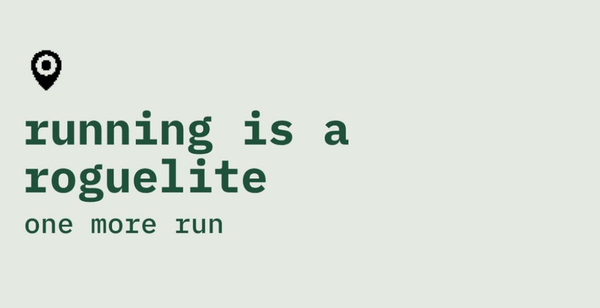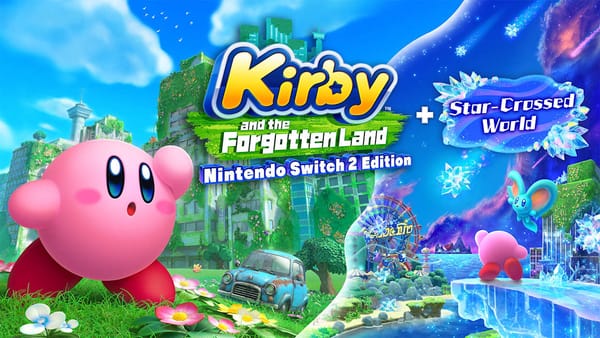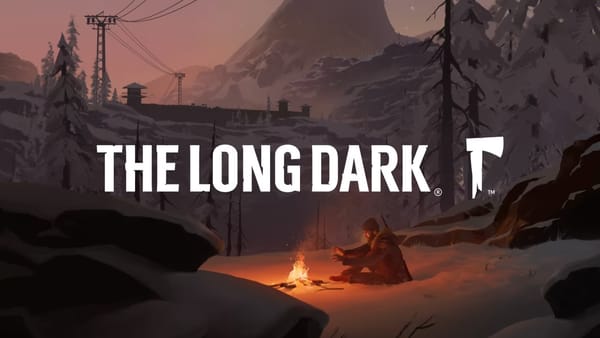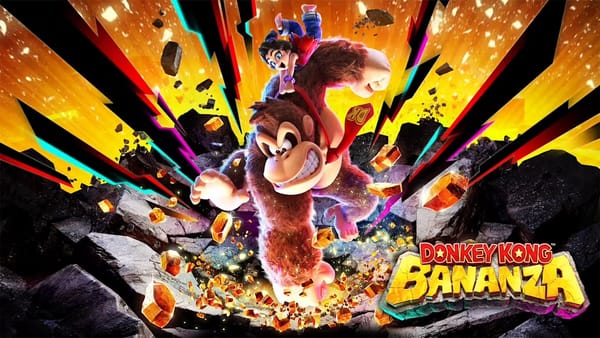Is it time to quit games?
An honest exploration of attachment, time, and limits
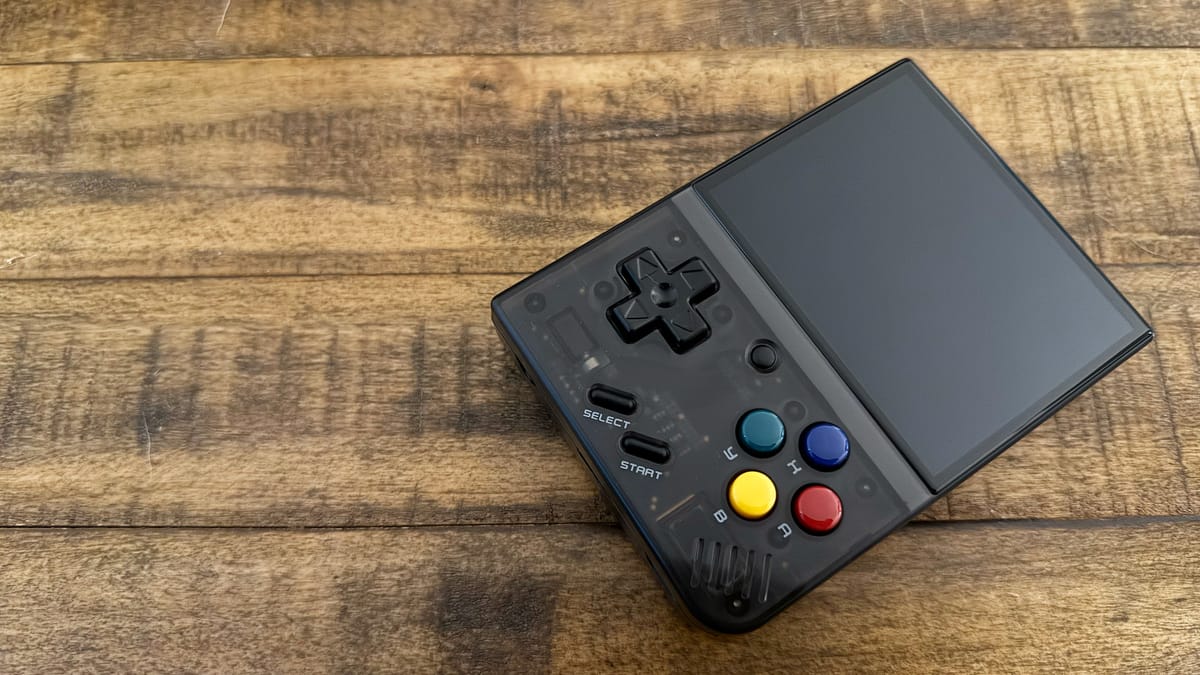
I have been watching too many videos on handheld emulators. I have been thinking of Death Stranding on the south coast of Iceland. I have been wondering whether it’s time to stop playing games.
I don’t want to be dour about games. I really don’t. It’s no fun to be not fun about a medium that is meant to be fun. But I’m not having any fun anymore, and I hope, here, to explain myself, and to propose a path forward. For me, yes. But maybe for you, too.
Looking over my recent writing, not just on Backlog, but even dating back to when I still was writing a monthly column on indie games over at Polygon pre-Valnet, it’s clear that I am, for lack of a better term, falling out of love with the medium. “Games, more often than not, are enjoyable but not meaningful,” I wrote of Donkey Kong Bananza, a game primarily about smashing stuff. “What is a celebration without achievement? A birthday party. What is a narrative without a story? The Democratic Party. Kirby is both,” I wrote about actual-pink-puff-ball Kirby. Way back in February 2025, when our American descent was only just beginning, I wrote on Polygon: “Read about how the Treasury Department has been taken over by an unelected individual and his weird army of goons? Stop that! Spell out nonsense words. Seek patterns in absurdity. Who cares! Make it all make sense. TLAK!” Hell, even as far back as October 2022, I wrote the following lede for my review of Minit: “Do games not make you think of death?”
In my own morose way, I seem to be asking the same question that Jamin Warren recently explored in his essay “Long games and the pursuit of lost time.” In it, Warren makes the argument that game length, especially as compared to television, film, and music, is one of the things holding it back as a medium. “The time commitment required for games creates a moat of experience and prevents players from sharing experiences with others,” Warren writes. He goes on to do the math on how long it would take to play through the established “canon” of videogames, using Metacritic’s top 100 games as a pragmatic if flawed counterbalance to the AFI 100 or NPR’s top 100 albums. The results, if you’ve played a contemporary game, won’t surprise you. It would take roughly 500 hours to play through the games on that list, versus 50 hours for the AFI list or 10 hours for the NPR. Games, by this calculus, are an expensive medium to consume, strictly from a time perspective.
Warren is not, of course, talking about death in this essay, at least not directly. But I am. Why? The truth is probably a combination of general disposition and the prevalence of it in my life as of late. I won’t go into details, because they are banal, because death in its natural occurrence is banal, but safe to say that mortality has been on my mind these past few years. Couple that with my own life reaching its statistical midpoint, and couple that with the garish omnipresence of death and violence that is the period of American history we are living through, my framing of games as memento mori, to probably abuse that concept, is not accidentally morose. It is true that we are all, all of us, dying, and how we spend our lives matters. And I’m not convinced, at 35, that videogames offer enough to justify that cost.
I bought a Miyoo Mini Plus for a recent trip to Iceland. My wife asked that I not bring the Switch or Steam Deck with us, which I took to mean that I could find an alternative method by which to play games. So I bought a cheap handheld emulator. This is analogous to addict behavior, a comparison my YouTube history also plays out.
Because I’m a masochist, I went through my watch history back through July 1, and I came up with the rough estimate that I’ve watched 950 minutes of emulator-related content, or just shy of 16 hours. While not an astronomical quantity by modern algorithmic-time-waste standards, I offer it up as an example of time that was both unconsidered in its usage and unrewarding in what it offered me. Of those 950 minutes, only a small fraction of it was spent researching the emulator I ultimately bought. The rest was spent on watching long reviews or previews of devices I have no intention of ever buying.
I didn’t end up taking the Miyoo Mini Plus with me to Iceland, firstly, because I was able to get outside of myself and see the situation for what it was (that is: embarrassing, in the sense that I attempted to get around a simple request from my spouse by essentially saying But you didn’t say anything about a little Game Boy-esque emulator, now did you?), and secondly because I haven’t flown in a bit, and I had irrational fears about that thing’s battery and its capacity to catch fire. Mostly the first thing. But, yeah, a little of the second, too.
That didn’t stop me, however, from tinkering with it in the weeks leading up to the trip. It’s a cute little device, vaguely reminiscent of my very first Nintendo handheld, the Pikachu-themed Game Boy Color. (If you’re looking for something that more than vaguely resembles that particular Game Boy, might I direct you to the PKM Yellow variant of the Retroid Pocket Classic. [I am not kidding about the amount of time I spent watching videos about emulators.]) I loaded up [redacted number of games] on it, but immediately started playing EarthBound, a game I could play on the Nintendo Switch Online service but found more charming to play on a tiny plastic rectangle that cramped my hands instead of a large plastic rectangle that cramped my hands.
EarthBound is great. Shocking statement, I know. The combination of humor, absurdity, and the off-kilter Americaness of it still holds up in 2025. And the music. My god, the music. But by placing it on a device that I purchased in a headspace of anxiety searching for some kind of consumerist relief, I’ve found it difficult to return to. EarthBound itself is worth playing, but in loading it onto a device I now associate with a period of my life where I was clearly trying to always be occupied with something, anything, so long as it had a screen and buttons, I found myself turning away from it and toward a different font of content: my newfound interest in the stories found on r/StopGaming.
Like a lot of men, I turned to Reddit in a moment of personal crisis. I Googled my epiphany and found myself among other former gaming faithfuls. r/StopGaming is, as the title clearly announces, a community dedicated to helping people stop unhealthy gaming habits and change their lives. I am not going to quote directly from anything I’ve found there, because a bad faith reading of it is all too possible. These are desperate posts from desperate people, crying out for help and community, and they are worthy of empathy. While I did not recognize in myself the same degree of their addiction (I do not play videogames from the end of work until 2 am, for example), I found kinship in their attachment to the medium and recognition in their dread.
Many talked about losing their jobs, turning to videogames as a means to replicate that feeling of reward only to find themselves in a vicious cycle of inactivity, unable to break out of the simulacrum of the thing they missed most: purpose. Others talk simply of a desire for relationships, platonic and romantic, and how games would keep them from such opportunities or degrade and corrode the bonds they’d already made. One post in particular seemed like it could’ve been written by me: a list of all the things you could’ve done in the time that it took you to play Baldur’s Gate 3.
That list in particular haunted me, not because of any of the specifics on it (I’m not presently aspiring to learn a new instrument), but because, without realizing it, I’ve been making such lists in my mind for quite some time. Those 25 hours I spent playing Blue Prince could’ve been 25 hours spent on revision of that novel manuscript you’re struggling to find an agent for. Those 10 hours spent playing Kirby could’ve been 10 hours you spent working on house projects. Those 30 hours you spent with Donkey Kong Bananza could’ve been 30 hours you spent reading books, lots of books, more books than you read all last year. Reading over this one r/StopGaming post, which may or may not have been methodologically sound, I found myself shocked to the degree to which I saw myself in it. I saw my own mental calculus, screaming out: this is a waste.
Is this a waste? Not for everybody, no. But I think right now, for me, it is. It feels like a waste to spend my time on games, in the sense that they don’t relax me like they used to. They don’t turn off my brain in any pleasant way, or activate it in an interesting way. They feel rote to me now, or they feel like toys, or they feel like expressions of the capitalistic drive to feel occupied. Notably, they don’t feel fun.
In his review of Shinobi: Art of Vengeance for Endless Mode, Garrett Martin writes about the tendency of games critics to try to make games sound artistic, even if that’s not what they’re going for. “There’s a strand of belief in certain quarters that games writing is insufficient when it doesn’t serve as deep, nuanced critique,” Martin writes. “That we as a culture and games as an artform have moved past the need for a focus on mechanics and writing about how a game is played instead of what it’s trying to say or how it tries to say it.” Put another way, there are an awful lot of narratologists out there writing about games right now—and, yeah, I’m one of them. Look no further than my Donkey Kong essay where I literally talk about books. Beyond my writing though, I am genuinely hungry for the games I play to mean things. Or at least to be attempting to say something. Martin, though, argues that this might be a wrongheaded way to view these experiences. That an action game with solid action is, perhaps, an argument unto itself:
But for Art of Vengeance action isn’t a placeholder between emotional reveals. It’s not something leaned on to make sure the game reaches a certain length. It’s not just what you do to get from one story beat to the next. Action is why you play a game like Shinobi: Art of Vengeance. It’s why the game exists. And it’s not something that can really be understood or explained through cultural criticism adjacent to the kind used to analyze movies, books, TV shows, or even narrative-focused games. Art of Vengeance is about how it feels, not how it makes you feel, and that purity and simplicity can be just as powerful and important today as it was when a game’s story was nothing more than fuzzy white block text on a stark black background.
And:
This is a game about doing, not thinking or feeling, and that constant action should represent the sum totality of any discourse around the game.
In short: the game feels good to play. What else is there to say? Meanwhile, on the other side of my games media diet, in a Patreon-exclusive segment on Post Games, Chris Plante recently made an argument for fun being a sufficient reason for playing games, even in this dark historical moment. He calls it “The case for having fun.” “If you’re like me, then every few years, or maybe months, or maybe hours, you ask yourself: How can I care about videogames in times like these?” Plante asks. For his full answer, you’ll need to pay up, but suffice to say, he strikes a positive tone. It’s okay to have fun, folks. It really is, and I’m not going to say otherwise here. If you enjoy games, enjoy them. If you find solace in them right now, take it. Find things that feed you. We don't want to be hungry for what's ahead.
But if, like me, you find that you can’t focus on games like you used to, or you can’t get past the conscious understanding that the experiences are artificial, or you can’t pick up a handheld emulator without seeing it as an emblem of your deep-seated discomfort with boredom in all its form (okay, that one might be too specific)—if, like me, you find yourself thinking it might just be time to stop playing games, then stop. Maybe not forever. Maybe not even for that long. But stop. Take a step back. Assess your feelings. Then, decide: Do I want games in my life or not?
I don’t yet know the answer to that question for myself. I want to tell you that I’ve stopped playing games completely, but it isn’t true. I’ve played much less, that I can say. Besides an hour or so of PEAK with my friends, I’ve not played a game for more than 15 minutes in the past two weeks. Every time I’ve tried—booting up Chibi Robo on the Gamecube app on my Switch, trying out some of the games I’ve banked on my Steam Deck for some imagined day when I’d have the time—I bounce off of them. Hades II is coming out this week, a game I’m interested in and already own (thanks, early access). Will I get into it? Will that be the thing that finally breaks through my indifference to the form? I’m scared the answer is no. Scared because, if not Hades, then what? What will make me want to play again?
Two things could happen: Distance could make the heart grow fonder, or this might be the end of a period of my life. Either way, what I can say for certain is this: I don’t think I’m writing very good essays here as of late. Quality judgments aside, my heart isn’t in it. To that end, I plan to take some time away from Backlog. How much time, I can’t say, except that, if I don’t have anything interesting to say, I won’t force myself to say something. And maybe that’s the answer in the end. Maybe I need to find my way from a narratologist perspective to a ludologist’s. Maybe I need to stop writing about games in order to remember how to play them, and why to play them, which is to say, to enjoy them. All I know is I need time, and I don’t need games. Not right now, at least. Not right now.
Last weekend, I ran my second half marathon, earning a personal record of 1:50:14, with an average pace of 8:20/mile. It was far faster than I had thought I could go. I was aiming for a 8:50/mile pace, thinking even that to be a stretch. But when I started the course, sticking close to a friend of mine who was pacing me to help me break the two-hour mark, I left the gate faster than I thought I would. I felt strong. I felt good. I felt rested, and well-fueled. As the race went on, and my mile splits went from 9:00, to 8:45, to 8:35, to 8:30, I realized I was stronger than I thought, and that I could, maybe, run sub-8:00 miles for the last four miles. So I tried it. And I did. And as I crossed the finish line, my family cheering me on (and me doing a little bit of showboating), I was proud of myself. Not simply for my time (though, yes, I’m quite proud of that time as someone who has only been running for a year), but because I listened to my body. It was telling me what I was capable of. It was telling me to move.
I hope the same will happen with games. I hope that, some time in the future, I’ll realize that I’m ready to come back. That my body will give me a sign I’m ready. Not only to play, but to think about them. To write about them. But for now, I have to listen just like I did in the half marathon, only in the opposite direction. With games, I need to slow it down. And, for now, to stop.
Reader, I hope to be back. And if I do, I’ll promise you this: I’ll have discovered something new. Something worthwhile. Something I didn’t know I had in me. Something worth saying about something worth doing.
Until then: take it easy, but take it.


